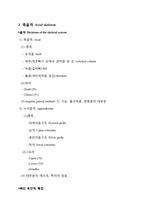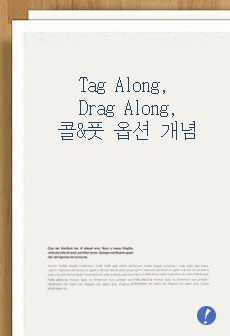The Role of Power Relationships in Interpreter-Mediated Communication in Medical Settings
- 최초 등록일
- 2023.05.25
- 최종 저작일
- 2023.05
- 7페이지/
 MS 워드
MS 워드
- 가격 5,000원

소개글
"The Role of Power Relationships in Interpreter-Mediated Communication in Medical Settings"에 대한 내용입니다.
목차
1. Introduction
2. Contextualizing the Research Topic
3. Cultural Perspectives and minor cultures
4. Self-awareness and ethical considerations in the Role of Interpreters
5. The Influence of Interpreters in Communication
6. Involving Patients from Non-Western Minorities
7. Research questions
8. Methods
9. Limitations
본문내용
Efficient healthcare delivery depends on efficient communication, especially when people from different linguistic and cultural backgrounds are engaged. Interpreters act as crucial mediators in these circumstances, promoting communication between people who do not speak the same language. However, interpreters' responsibilities go beyond simple language translation and include recognizing and negotiating the power dynamics of any communication setting. The power dynamics between the parties involved, particularly in healthcare contexts, can significantly impact how conversations mediated by interpreters turn out.
With a particular focus on the function of interpreters in promoting effective communication outcomes, this research proposal explores the cultural features and power dynamics inherent in interpreter-mediated communication within medical contexts. How power dynamics, particularly institutional and interpersonal power dynamics..
<중 략>
참고 자료
The Mikkelson, H. (1998). Towards a revised definition of the court interpreter's job. 3(1), interpreting, 21–45.
I. Mason, W. Ren, et al. (2012). Face-to-Face Interpretation of Events Has Power. Studies in translation and interpreting. American Translation and Interpreting Studies Association Journal, 7(2), 234–253.
Putsch and Kaufert, J. M. (1997). The Journal of Clinical Ethics, 8(1), 71–87. Communication through interpreters in healthcare: Ethical conundrums coming from variations in class, culture, language, and power.
E. Hsieh. (2008). "I'm not a machine! Interpreters' perceptions of their functions in medical settings. 1367–1383 in Qualitative Health Research, 18(10).
A. Holliday. (1999). modest cultures. Language in Use, 20(2), 237-264.
Norström, E., Fioretos, and K. Gustafsson. (2013). Issues of doubt in the diagnosis of refugees by interpreters. Medicine and anthropology, 20(1), 48–62.
E. Becher, E. Wieling, & Co. (2015). Relationships between a physician and an interpreter and the intersections of culture and power: a qualitative study. Psychology of ethnic minorities and cultural diversity, 21(3), 450.




